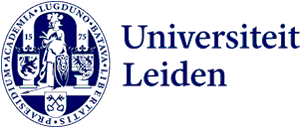
Between literature and law: 'Art can show us how law works and what is just'
The interplay between literature and law is what Frans-Willem Korsten wants to address as a brand-new professor of Literature, Culture and Law. That means doing research, but certainly also teaching. 'The Hague is of crucial importance for the humanities.'
In the Anglo-Saxon world, it has been customary for over a century for aspiring judges and lawyers to also study literature. Fiction is said to help them assess the complexity of people and become more empathetic. Useful, Korsten thinks, but literature is more than a tool for arriving at a fair judgement. So he switches the roles around: what can the humanities actually do with law? A lot, it turns out. 'We mainly look at the role of art in areas where there is as yet no law, or where the law is lagging behind or inadequate.'
Law versus justice
This relates to the future, for example: 'You have all kinds of films and books in which robots are characters, but in real life they don't yet have legal status.' But art can also play a role in contemporary situations where parties are diametrically opposed. 'When it comes to traumatic issues, you see that a lawsuit often closes the case without solving the underlying problem,' says Korsten. 'In the Netherlands, for example, this is what happens with environmental issues. These groups may meet in court, but a ruling can’t resolve that controversy. What often happens is that art or literature takes over. It is then no longer about what is the law, but what is just - and how that can be very different for the parties involved.'
'What is the law and what is just can be very different for the parties involved.'
A complicating factor here is that the parties involved are increasingly debating law and justice on social media even during the trial. 'Western law is very theatrical in its basic structure, which is now having to face the possibilities of social media,' Korsten explains. 'Right-wing extremists, among others, are using it to try to undermine justice. You see this, for example, with Alex Jones, an American radio presenter and conspiracy theorist. He admits in court that his statements are indeed incorrect, but then doesn’t show up during the verdict. Instead, he holds a livestream in which he mocks the law. What does it do to that theatrical system when people stop playing their roles within it?'

Feeling what is important
While other professors dream of defining the answers to such questions in books or articles, Korsten additionally has another main goal. 'One of the most difficult aspects of interdisciplinary research is getting the different disciplines to talk to each other. My colleague Yasco Horsman and I set up the minor in Questions of Law and Justice in Literature in the Arts with Claudia Bouteligier (Faculty of Law). It seems to be doing very well. That's good, because some humanities staff were initially a bit dismissive about Campus The Hague, considering International Studies, for example, of minor importance, even though there were already five hundred enrolments there in the first year.'
I want students who have taken my courses to have a better developed sense of things.
Korsten enjoys teaching in The Hague programmes, which, like his research, are on the cutting edge between disciplines. 'The Hague attracts a type of student that I find very interesting, because they are not necessarily interested in literature or art in the first place. When I was lecturing the first time, three students came up to me during the break and said, "What’s important about culture?" I like that because it forces me to come out of my familiar bubble. Spending a lot of time reading and watching fosters empathy, but how do you make that clear to students who have been trained as test-taking machines since the age of four? I want students who have taken my courses to have a better developed sense of things, so that they can rediscover what they find intrinsically important about the problems in the world.'
